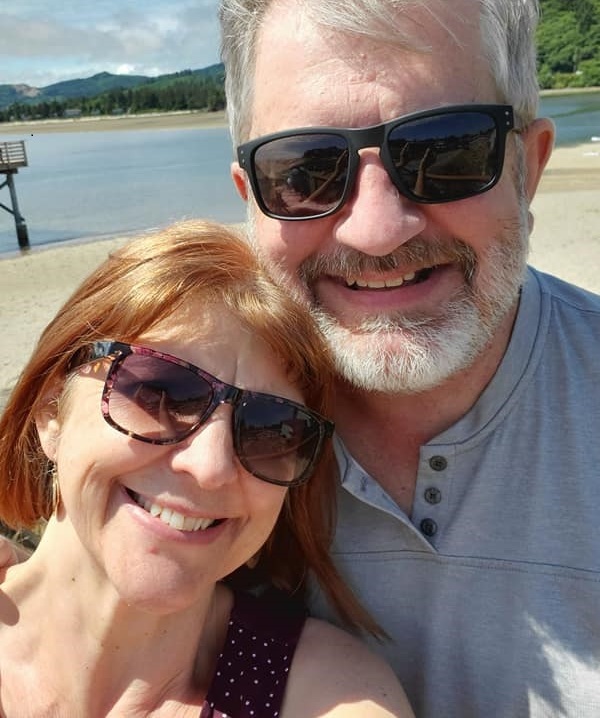You can find the Book of Ecclesiastes in the middle of your Bible. This one-of-a-kind book explores a nagging age-old question: What is the meaning of life? This poetic essay or sermon, probably written by Solomon about halfway through his reign as king of Israel, ponders the apparent meaninglessness of life “under the sun.”
The phrase “under the sun” aptly describes Solomon’s earth-bound perspective through this book. He isn’t looking at life as the Lord God in heaven sees it but from the perspective of an immensely wise, fabulously wealthy, and politically powerful individual here on earth. From his famed vantage point, Solomon bookends Ecclesiastes by saying, “Everything is meaningless” (1:2; 12:8, NIV).
Nevertheless, throughout this book, Solomon alludes to basic beliefs in God’s justice, graciousness, sovereignty, omniscience, transcendence, revelation, mystery, creative power, and eternal nature.
Solomon wraps up the book by saying: “Here is the conclusion of the matter: Fear God and keep his commandments, for this is the duty of all mankind. For God will bring every deed into judgment, including every hidden thing, whether it is good or evil” (12:13–14, NIV).
Solomon leaves it up to the reader to decide who God is (the Lord) and how He reveals His commands (Scripture).
What Is the Importance of Ecclesiastes in the Bible?
First, to stretch believers. Solomon assumed most of his readers were already well-versed in the commands the Lord God in heaven had revealed to Moses.
Second, to reach non-believers. Solomon likely distributed copies of this book to foreign visitors, especially dignitaries, as a means of provoking their interest in the Lord God of Israel.
Solomon’s most quoted verse: “There is nothing new under the sun” (Ecclesiastes 1:9, NIV). Three other frequently quoted verses include: “Two are better than one” (Ecclesiastes 4:9, NIV), “A cord of three strands is not quickly broken” (Ecclesiastes 4:12, NIV), and “Whatever your hand finds to do, do it with all your might” (Ecclesiastes 9:10, NIV). Solomon’s most famous series of verses are:
To everything there is a season, and a time to every purpose under the heaven: A time to be born, and a time to die; a time to plant, a time to reap that which is planted; A time to kill, and a time to heal; a time to break down, and a time to build up; A time to weep, and a time to laugh; a time to mourn, and a time to dance; A time to cast away stones, and a time to gather stones together; A time to embrace, and a time to refrain from embracing; A time to gain that which is to get, and a time to lose; a time to keep, and a time to cast away; A time to rend, and a time to sew; a time to keep silence, and a time to speak; A time of love, and a time of hate; a time of war, and a time of peace (Ecclesiastes 3:1-8, KJV).
Musically, the Byrds made these ancient lyrics world-famous with the song “Turn! Turn! Turn! (To Everything There Is a Season).” Many other music artists have covered this song over the past 55 years. It has also been featured in many movies and television shows. Famous, indeed!
Solomon’s most theological verse: “He [God] has made everything beautiful in its time. He has also set eternity in the human heart; yet no one can fathom what God has done from beginning to end” (Ecclesiastes 3:11, NIV). Therefore, “Remember your Creator in the days of your youth” (Ecclesiastes 12:1, NIV).
Solomon’s most succinct command: “Fear God” (Ecclesiastes 3:14; 5:7; 12:13). Then again, never forget: “There is no one on earth who is righteous, no one who does what is right and never sins” (Ecclesiastes 7:20, NIV).
Solomon’s most sobering declaration: God will bring every deed you do into judgment (Ecclesiastes 3:17; 11:9; 12:14). Therefore, do three things. First, don’t make rash promises or vows to God (Ecclesiastes 5:1-6). Second, think about the day of your death (Ecclesiastes 7:1-4). Third, remember God blesses those who fear Him (Ecclesiastes 7:18, 8:12-13).
Those last two paragraphs hit home with both believers and not-yet-believers alike. After all, those are the two reasons Ecclesiastes is included in the Bible, remember?
How Is Ecclesiastes One of a Kind?
I love reading the one-of-a-kind Book of Ecclesiastes. It’s a great book to read and discuss with a philosophical friend who isn’t a Christian, yet.
When it comes to faith and spirituality, my interests are wide, but my preferences are narrow. In the end, I broke with my family and rejected atheism, and accepted the one true Lord God, Jesus Christ, the Bible, the Church, and Christianity.
That doesn’t make me close-minded, of course. It simply means I have no desire to be a spiritual surfer or a religious mix and match situation.
Believe me, I’m well aware many people argue that followers of Jesus Christ shouldn’t be so “dogmatic” that He is the only way to God. In one of His most famous sayings, Jesus told His listeners, “And ye shall know the truth, and the truth shall make you free” (John 8:32, KJV).
That verse is inscribed in stone at several Ivy League universities. Sadly, today, Jesus’ saying has been turned around: “If you think you know the truth, keep it to yourself.” But why?
Over the years, I’ve not only studied Christianity in-depth but also explored the other major world religions. I’ve interviewed people representing a wide spectrum of beliefs and happily made many friends along the way.
I often tell people who want to talk about faith and spirituality that I’d prefer to be a facilitator — not an “answer man” — when it comes to discussing their many questions. In the end, after all, it doesn’t matter what I think or believe. So, I ask them not to take anything I say as gospel truth.
I encourage those I meet to ask God to show them the truth about their questions and the assumptions behind them. Toward that end, I sometimes suggest the following prayer:
Dear God, Maker of heaven and earth, please help me to come to the place of knowing you as you are. Help me to come to the place of quiet strength and peace, a peace that passes all understanding, a peace that only you can give. Speak to me in a new way as I read the Bible, your holy scriptures. Help me to trust in you on a whole new level, both on my best days and my hardest.
When I first met Fernando, a Brazilian friend, he was a syncretistic believer. That is, he read from a wide assortment of scriptures representing all the world’s great religions. I’ve rarely met such an earnest seeker of truth. And, yes, he loved the Book of Ecclesiastes and reading about Jesus.
At one point, Fernando began praying the prayer I quoted above. He confidently noted what day he started praying — and what day he wanted God to answer him. He was thrilled when God beat that deadline by 23 days! “Jesus said to him, ‘Again it is written, “You shall not put the Lord your God to the test’” (Matthew 4:7, ESV).
A Closing Prayer
Yes, Lord, I want to say, Thank you! for the Book of Ecclesiastes. This might be a good book to read with one of my more philosophical friends or acquaintances who isn’t a Christian yet. Please put their name on my heart. I don’t want to make a rash vow, but I plan to write down their name and then, when the opportunity arises, I want to talk with them about this. Amen.
For further reading:
What Does it Mean ‘For Everything There Is a Season’?
How Does God Make Everything Beautiful in its Own Time?
Photo Credit: ©iStock/Getty Images Plus/SergioYoneda









